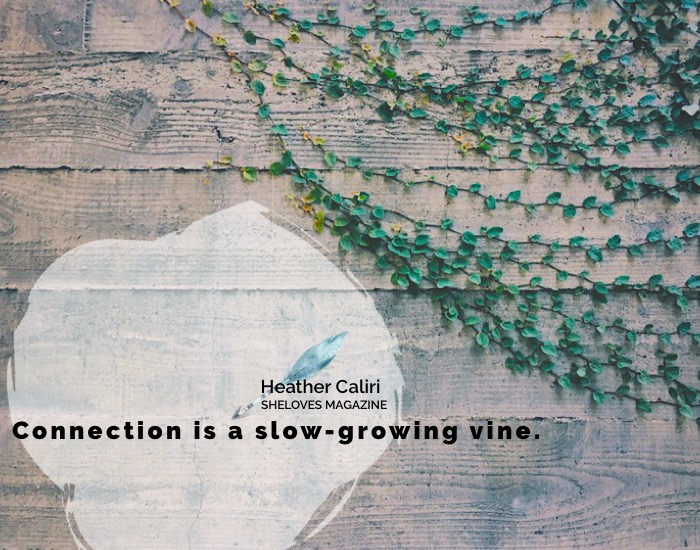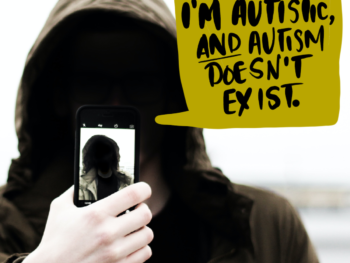
My small group started two weeks ago. I was surprised—really surprised—to feel excited about that.
When I joined the group at the beginning of last year, I didn’t expect to stay more than a few months. I had my arms crossed rather tightly across my chest during the first meeting. And the second meeting. And the tenth.
Even weirder is this: For years, I was a poster-child/small group leader/cheerleader for our church’s program.
Yeah, I’m getting whiplash, too. Apparently, I can’t make up my mind whether I like small groups or not.
My church started its small group ministry not long after I got married, fifteen years ago. I signed my husband and I up to host a group, and within a year, we had dozens of twenty-something adults gathering at our house for two “small” groups.
The sudden growth astonished me. It’s the only time in my life I’ve felt like the hub of a movement. It felt really good, like I was Jack planting magic beans.
But remember how the beanstalk gets felled by an axe?
In my case, it was a few axes. The group outgrew our two-bedroom house. So, we split up, losing energy in the process. Also, twenty-something people transition a lot—within just a few years, most of our close friends had moved away or left for other reasons.
Then, I had a baby. It wasn’t fun to host a bunch of people at my house after 9pm when I knew I would get woken four times that night.
There was another thing eating away at my tether to the beanstalk: I’d experienced spiritual abuse at this church in high school because of a toxic youth leader. He and the other leaders responsible were gone, so I assumed I’d healed.
But I hadn’t. I didn’t realize it, but I was quite bitter under my cheerful participation.
Having that small group crumble to pieces around my feet hurt. It wasn’t anyone’s fault, but it felt personal. And my bitterness surfaced. Big time.
I did what I usually do when I’m limping, which is soldier on cheerfully, telling myself I wasn’t actually injured. I signed my husband and I up for other small groups. We put in time with lovely people we did not know, over and over and over, expecting another beanstalk to sprout.
Then I lowered my expectations, and hoped for a flower. Then just for a bit of greenery.
The ground stayed stubbornly bare.
It takes a lot of work for wounded introverts with small children to keep connecting to people who drift, like dust, through their lives. We invested, and we gave, and we stayed open, and it hurt both of us terribly.
My husband finally told me he’d had enough. I opened my mouth to convince him otherwise, and then closed it. I couldn’t really argue.
I was so weary of trying to connect. I was so tired of extroverts making assumptions about how c0mmunity works (put twelve strangers in a room with questions and kaBOOM!) I was so tired of the myth that fellow Christians would become my best buds because Jesus.
I was tired of myself, of my introversion, of my mysterious cynicism. I was tired of feeling alone in a room full of people. I was afraid my bad attitude meant God had abandoned me.
And then I realized, a few years later, that my cynicism had toxic but explicable roots. I started digging them up. I talked to our church leadership, and they responded well. A weight lifted.
Hesitantly, my husband and I decided to stay at our flawed but lovely church, and recommit ourselves to trying.
Which meant that when I heard about a new small group for women that worked for my schedule, I signed up. But I kept my arms crossed, daring someone to alienate me.
I showed up with zero expectations. I did not expect best buddies. I did not expect a beanstalk. I just wanted to see if I still felt alone in a room full of people.
Truth be told, I doubted I’d stay. I gave the ridiculous forced bonding a semester before I quit.
For fun, during discussions, I would say things I expected to raise eyebrows, like, “I don’t really like the book of John.” And “I’m not a big fan of evangelism.”
To my surprise, the women around me leaned forward and asked honest questions.
I started getting to know the other women—not just at small group, but at children’s choir and youth group. I saw my fellow members laying out communion on Sunday. I finally put a name and story to the face of a woman who had been at the church even longer than I had.
A year later, no magic beanstalk has sprouted. My small group is not made up of all my best friends, and we are not having brunch together after church (#mimosa #blessed). Instead, connection is a slow-growing vine.
Still, I’m starting to feel truly rooted at church for the first time since our old first small group died. It’s not magical. But it is a kind of miracle.
Looking back, I wish I had allowed myself more space to grieve when small groups didn’t work for me. I wish I had taken a break from trying sooner, rather than blaming myself.
I’m thankful it was possible to heal from my bitterness without having to leave a church I’ve attended for thirty years. I’m happy I returned to small groups, even if I’m still surprised I like it.
I’m terribly, ridiculously grateful that we all get second, and third, and fiftieth chances to try again.
Originally published at SheLoves Magazine



